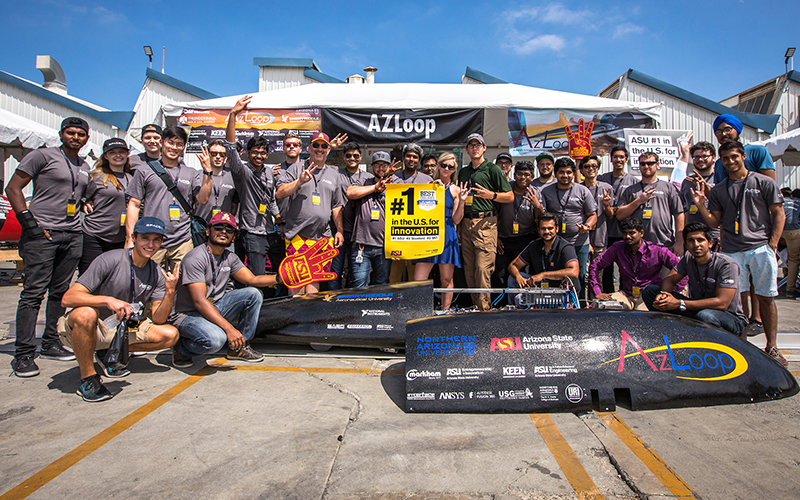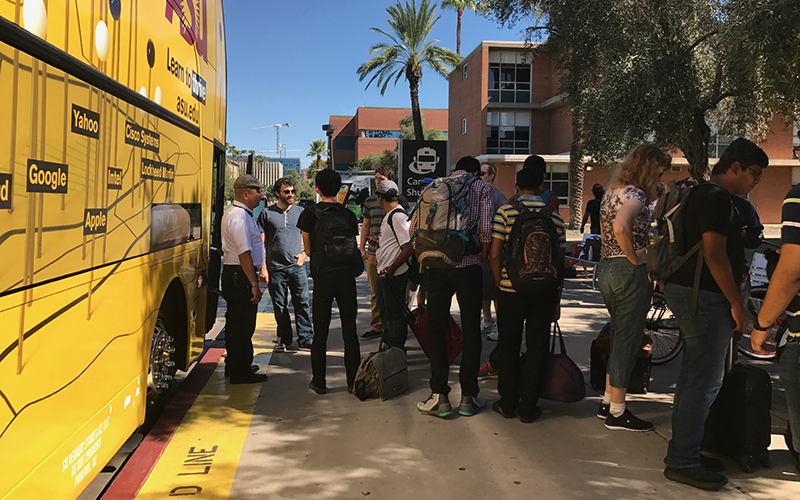PHOENIX – Dozens of students from several Arizona universities spent the weekend in Hawthorne, California, competing at the SpaceX headquarters to build a high-speed transportation pod.
As they headed back to Phoenix on Monday, they were exhausted – and a little bit disappointed that they didn’t get to do a test run on the track. But they also were proud: The team placed among the Top 8.
And the team, called AZLoop, already was planning for next year’s competition.
“More than a competition, we’ve established the Hyperloop team on ASU,” team member Karthik Subramanian Sankaran said. “So win or lose, we’re going to continue. We have started and established a benchmark that other ASU teams can work with.”
SpaceX, the aerospace company led by Elon Musk, developed the Hyperloop technology with the hopes of creating a low-pressure vacuum chamber that can transport people from Los Angeles to San Francisco in 35 minutes.
It started the Hyperloop competition in 2015 and invited university students to compete to see who could accelerate its development. It was so successful, SpaceX decided to sponsor a second competition.
Arizona State University students didn’t make the final cut in the first competition. And they combined efforts with other Arizona schools, including Thunderbird School of Global Management, Embry-Riddle Aeronautical University and Northern Arizona University.
More than 100 students have worked for months to prepare for last weekend’s competition. This one focused on speed.
Team members said they were positive that had they been given the opportunity to compete, AZLoop would have walked away with the win.
AZLoop successfully passed technical and safety training, however five of these teams did not have enough time to complete a test run on the SpaceX tube, according to an ASU news release.
“This is just a personal opinion, but if we would have gotten to take the final run, I fully believe we would have won the whole thing,” student Anthony Spadafore said via email. He served as the mechanical systems engineer for the team.
A team from the Technical University of Munich took home the gold and achieved a speed of more than 200 mph, according to an article in TechCrunch.
The final competition took place on a 150-foot track, according to ASU.
Unlike other teams, AZLoop had the advantage of testing the pod on a 150-foot track held on ASU’s Polytechnic Campus
“We legit changed pieces of ASU, which isn’t common for a student organization to do,” Spadafore said. “The fact that we got the test track on the Poly campus is amazing because not many student organizations can do that.”
AZLoop’s pod consisted of two braking systems: friction and magnetic, team member Jayanth Karthikeyan said.
“The most important factor that we wanted to incorporate was safety, because the competition is not currently focused on actual people,” Sankaran said. “If this technology works out the way we want it to, we can expand the size of the tube and the pod so that actual people can travel.”
Spadafore said SpaceX already has announced a third Hyperloop Competition.

